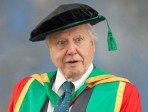 00:56:00
00:56:00
Women in Science: End-Running the Crowd
Sheila Tobias gives a presentation on the role of women in science and the obstacles they must continue to overcome.
More details | Watch now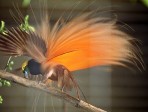 00:02:00
00:02:00
David Attenborough on birds of paradise – Part 2
British broadcaster Sir David Attenborough talks to Nature about his obsession with birds of paradise.
More details | Watch now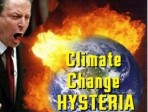 00:13:00
00:13:00
James Lovelock – A Final Warning
James Lovelock is best known as the father of Gaia theory; the idea that all parts of our planet form a complex interacting system, like a single organism. His new book depicts Gaia in trouble. In this interview Lovelock sounds a final warning for pl....
More details | Watch now 00:07:00
00:07:00
The Mother Fish
Evidence of reproduction by internal fertilization has been discovered in a large group of ancient jawed fish. Embryos discovered within fossils of these animals confirm that live birth in prehistoric times was much more widespread than previously th....
More details | Watch now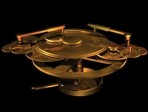 00:08:00
00:08:00
Antikythera Mechanism Part 2
New interpretations of the Antikythera Mechanism reveal that it could be used to predict eclipses, and that it had a dial recording the dates of the ancient Olympiads. The 2,000-year-old box of intricate gearwork provides a glimpse of the engineering....
More details | Watch now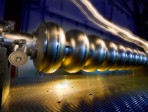 00:10:00
00:10:00
A linear collider at CERN – from IOP
The boss of CERN wants the next big experiment in particle physics after the Large Hadron Collider (LHC) to be built at the Geneva lab. Speaking in an interview with physicsworld.com, Rolf-Dieter Heuer said that CERN should host the experiment, which....
More details | Watch now 00:28:00
00:28:00
The importance of Science, Art and Design
The English mastermind comes to us for a special lecture and presentation on the fundamental role of art in scientific processes. Kroto will urge us to continue tapping into America?s most original and steadfast resource: creativity.nAt ARTISANworks,....
More details | Watch now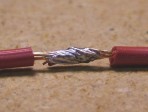 00:02:00
00:02:00
Soldering
This clip is about solder (a low melting point metal mixture) that can be melted using a hand-held soldering iron. The solder also has flux within it to help combat corrosion and produce a good solder joint to the components and circuitry.
More details | Watch now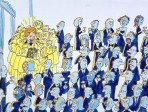 00:02:00
00:02:00
Hunting for Higgs – Why Build the Large Hadron Collider?
This short documentary explains why the Large Hadron Collider was built and what scientists are using the collider to look for.
More details | Watch now 00:29:00
00:29:00
Bernal and the Social Function of Science
Chris Freeman, the founder and first director of the UK's Science Policy Research Unit introduces Bernal, the father of the protein crystallography techniques which enabled the double helix structure of DNA to be unravelled. Bernal's major impact on ....
More details | Watch now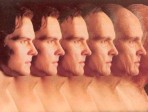 00:29:00
00:29:00
Forever Young – How long can we live?
How long can we live, and how long do we want to live? Why do we change as we get old, and is there anything we can do to stop it? In this video the panel discuss ageing and some of the recent remarkable scientific advances that suggest ageing may no....
More details | Watch now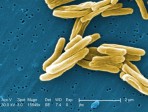 00:29:00
00:29:00
Defying Death
We can now expect to live longer than ever before, and if we get ill, we expect to be made better! However new threats continue to emerge.This presentation discusses tuberculosis and flu, new dangerous versions of old diseases, smoking and other life....
More details | Watch now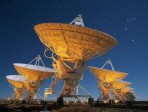 00:29:00
00:29:00
Is There Anybody Out There?
Is there life out there? Either on other worlds, deep space, or even deep in our oceans that we haven't encountered yet? Our panel of experts discusses the possibilities, and if there is life, what it may be like.
More details | Watch now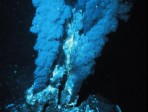 00:29:00
00:29:00
Voyage to the Bottom of the Deep
We are only just developing the technology necessary to probe deep beneath our oceans. Contrary to earlier expectations, we are finding whole new ecosystems of life. Are the ocean depths the next new frontier? Over half the surface of the earth is co....
More details | Watch now 00:28:00
00:28:00
Lindau – A Week With Nobel Laureates
Each year some thirty or more Nobel laureates come to Lindau to give lectures and interact with around 1000 young scientists from around the world. In any one year the focus is generally on one area eg chemistry, physics, medicine or economics. The i....
More details | Watch now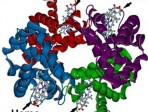 00:47:00
00:47:00
Max Perutz Interview – 1
Max Perutz discovered the structure of Haemoglobin (Nobel Prize 1962), and was the founder of the Laboratory for Molecular Biology in Cambridge, the birthplace of modern molecular biology. This interview shows his approach to science and his achievem....
More details | Watch now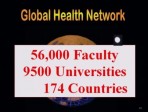 00:47:00
00:47:00
Global Health
An important and wide-ranging view of the state of the human-world's health for the Director of Disease Monitoring WHO Collaborating Centre Professor of Epidemiology University of Pittsburgh
More details | Watch now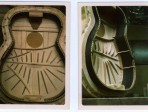 01:00:00
01:00:00
In conversation with Michael Kasha
Nobel laureate, Harry Kroto, interviews Michael Kasha, who has had a distinguished career in science. He was at Berkeley during the Manhattan Project, worked as a graduate student with G N Lewis, is a member of the National Academy of Sciences and ha....
More details | Watch now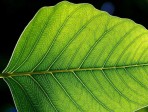 00:02:00
00:02:00
A Revolution in Solar Energy Production
Dan gives a brief introduction into his group's discovery of a new and efficient catalyst which could be of vital importance in our search for better ways of capturing solar energy.
More details | Watch now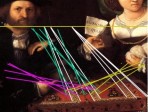 01:09:00
01:09:00
The Use of Optics in Art – David Hockney and Charles Falco
Charles Falco describes his and David Hockney's theory of the use of optical devices by mediaeval artists.
More details | Watch now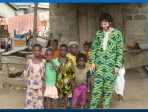 00:07:00
00:07:00
Nigeria
A short presentation discussing the economic disadvantages that Nigerians face and one possible method of attempting to alleviate them. Thomas Rush suggests the use of education to help promote an improved quality of life for the citizens outside of ....
More details | Watch now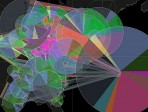 00:07:00
00:07:00
The Art of Science
A look at the relationship between art and science with the emphasis on carbon nanotubes and protein fibres. Transmission and scanning electron microscopes.
More details | Watch now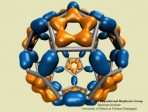 00:10:00
00:10:00
